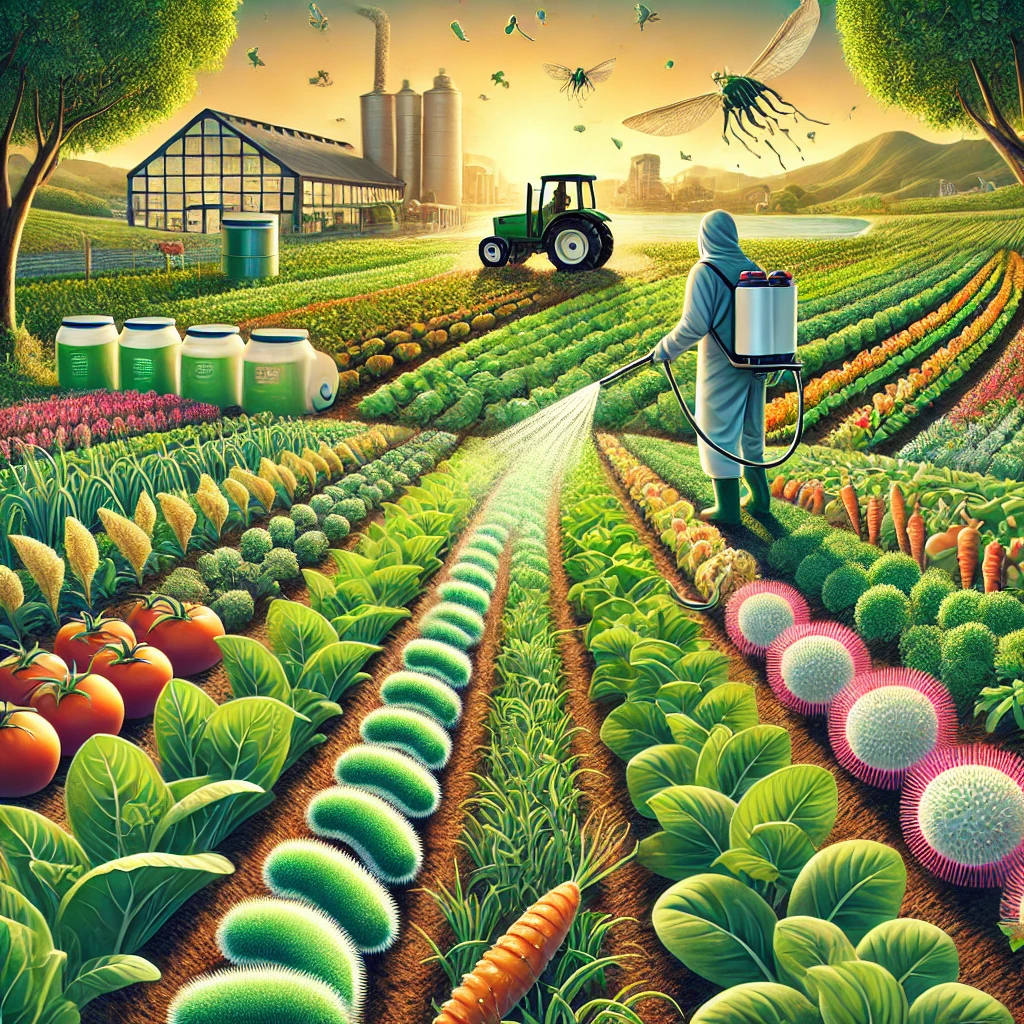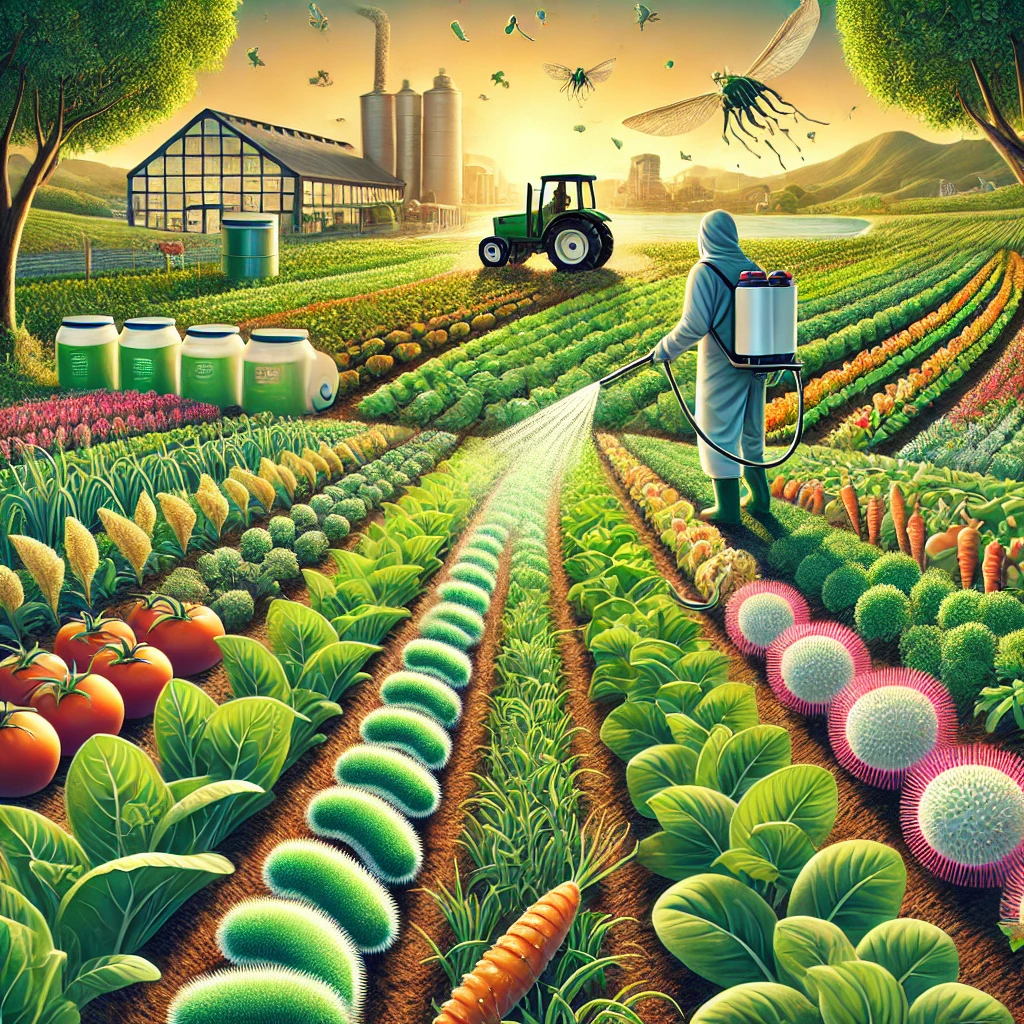
Introduction
Microbial pesticides play a significant role in organic farming by offering a natural alternative to chemical pesticides. These biopesticides, derived from microorganisms like bacteria, fungi, and viruses, help control pests and diseases while aligning with organic farming principles. This approach emphasizes environmental sustainability and enhances soil health, contributing to the overall success of organic farming practices.
Benefits of Microbial Pesticides
Microbial pesticides offer several key benefits for organic farming. Firstly, they are environmentally friendly, minimizing the risk of chemical runoff and pollution. These pesticides target specific pests or diseases, reducing the impact on beneficial organisms and maintaining ecological balance. Additionally, microbial pesticides can improve soil health by promoting microbial diversity and enhancing nutrient cycling. They also offer effective control of pests that may be resistant to conventional pesticides, contributing to more resilient pest management strategies.
Types of Microbial Pesticides
Various types of microbial pesticides are used in organic farming. Bacterial pesticides, such as those based on Bacillus thuringiensis (Bt), target specific insect pests by producing toxins that affect their digestive systems. Fungal pesticides, like those derived from Beauveria bassiana and Metarhizium anisopliae, act as pathogens to insects, leading to their control. Viral pesticides, such as those based on the nucleopolyhedrovirus (NPV), infect and kill specific insect pests. Each type of microbial pesticide is selected based on its effectiveness against target pests and compatibility with the farming system.
Challenges in Using Microbial Pesticides
Despite their benefits, microbial pesticides face several challenges in organic farming. One challenge is the potential for variable efficacy, which can be influenced by environmental conditions, such as temperature and humidity. Additionally, microbial pesticides may require specific application timing and methods to ensure effectiveness, which can complicate their use. There is also a need for ongoing research to better understand the interactions between microbial pesticides and non-target organisms, as well as to develop formulations that enhance their stability and performance in diverse farming conditions.
Case Studies and Success Stories
Several case studies illustrate the successful use of microbial pesticides in organic farming. For example, the use of Bacillus thuringiensis in controlling caterpillar pests has been widely adopted in organic vegetable production. Similarly, the application of Beauveria bassiana has shown effective control of whiteflies in organic greenhouse operations. These success stories highlight the potential of microbial pesticides to provide sustainable and effective pest management solutions within organic farming systems.
Future Directions and Innovations
The future of microbial pesticides in organic farming will likely involve continued advancements in research and development. Innovations such as genetic engineering of microbial strains, improved formulation technologies, and better understanding of microbial interactions will enhance the effectiveness and applicability of these biopesticides. Additionally, integrating microbial pesticides with other pest management practices, such as crop rotation and companion planting, will contribute to more comprehensive and sustainable pest control strategies.
Conclusion
Microbial pesticides offer a valuable tool for organic farming, providing environmentally friendly and effective pest management solutions. While challenges exist, ongoing research and innovation will continue to improve the efficacy and applicability of these biopesticides. By incorporating microbial pesticides into their pest management strategies, organic farmers can enhance soil health, reduce chemical use, and support sustainable agricultural practices.

